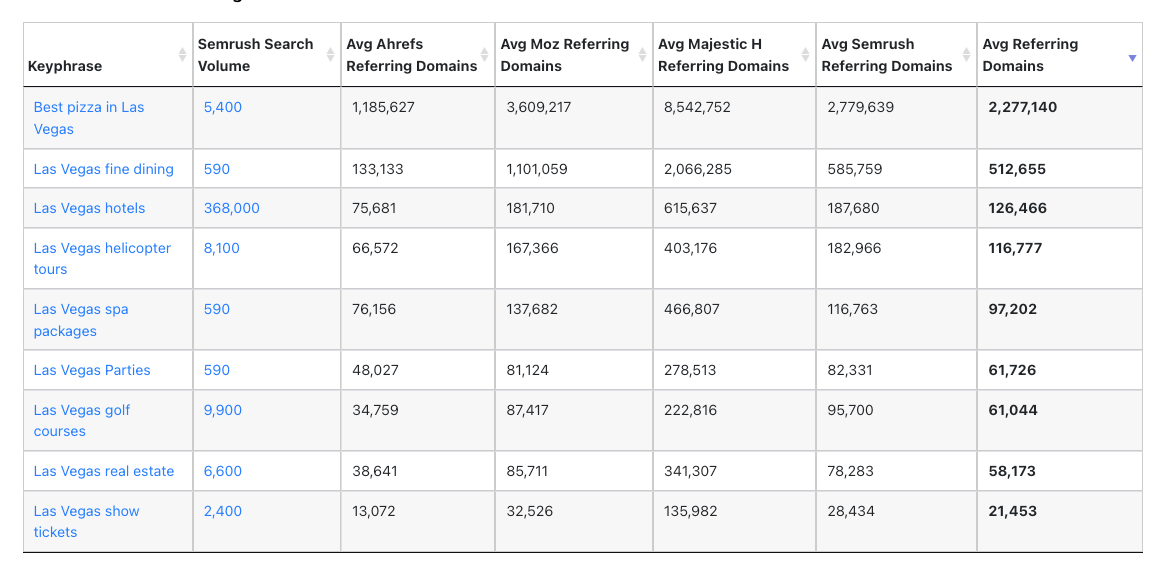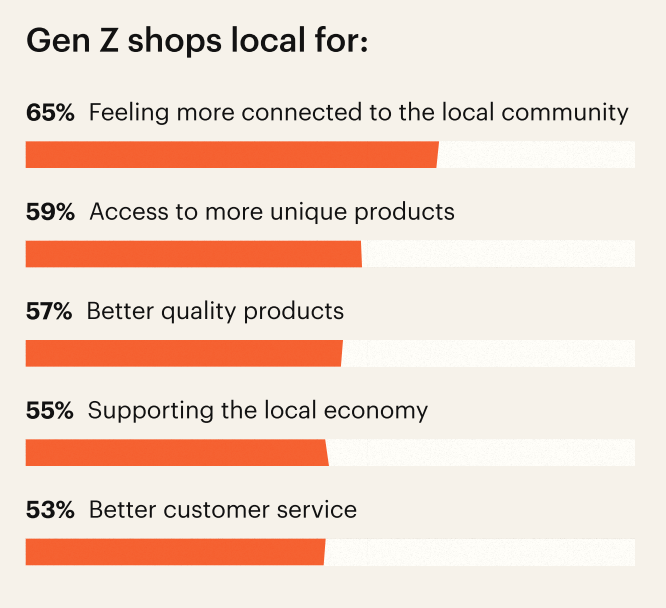Apple Intelligence Take 2, Links Really Matter, GenZ's Local Affinity

Apple Intelligence: Hot or Not?
People appear to be split on the significance and potential impact of Apple Intelligence. Some found the WWDC announcements unimpressive and the much-anticipated integration of ChatGPT to be underwhelming. Others argue exactly the opposite: that Apple is perfectly leveraging its unique position in the market and spot on with its approach to AI, personalizing it in ways that Google isn't and ChatGPT can't currently. Apple has rebranded AI and positioned what it's doing as "AI for the rest of us." Indeed, this may be a watershed moment in terms of the general public's AI awareness and adoption. However, iPhone owners will be compelled to buy higher priced phones to get it. Apple is also becoming an aggregator of AI tools and platforms. While it's working exclusively with ChatGPT now, Apple says it wants to work with others going forward, including Gemini. As Stratechery put it, "The company owns users and, by extension, generative AI demand by virtue of owning its platforms, and it is deepening its moat through Apple Intelligence." Users trust Apple and may see Apple Intelligence as a data and privacy safe way to access these tools.

Our take:
- Interestingly, the Apple-OpenAI deal is about distribution and potential revenue sharing. No money is reportedly changing hands.
- ChatGPT's brand is getting a big boost from the partnership, even if it's not getting paid. And the company's revenue has doubled in six months.
- Contrast Apple's approach to AI branding (Apple Intelligence) vs. Google's with Gemini, where there are multiple sub-brands, flavors and access points.
Links Still Matter – a Lot
Google has recently downplayed the importance of links for ranking. However, a new study from Internet Marketing Ninjas (h/t SEL) appears to directly contradict that position. It looked at 200 commercial keywords and the top 10 ranking sites (total of 1,113 sites) in each of the corresponding search results. Ahrefs, Moz, Majestic Historic, Semrush were used to determine backlinks. The major finding is "96.3% of the sites that ranked in the top 10 have over 1,000 unique domain backlinks." And none of the ranking sites had fewer than 50 backlinks. Nine of the 200 keywords were locally focused (on Las Vegas): "best pizza in Las Vegas, Las Vegas fine dining, Las Vegas hotels, Las Vegas helicopter tours," etc. The finding here was that while fewer links were necessary, generally there were more than 100 links required to rank. Yet "to rank on the first page for any of the 'Las Vegas' phrases, you’ll need an average of at least 21,000 backlinks." What this study, which needs to be replicated by others, affirms is that links remain critical and that you need lots of links to rank – even in local.

Our take:
- The study also found major sites dominated the top 10 (e.g., Amazon, Walmart). This makes sense given Google's affinity for brands, use of clicks, and the required backlink profiles.
- The Search API leak also implies that links must come from higher traffic/engagement/click pages, including in local.
- Google has recently defended itself against claims that it's lying to SEOs. But it's not entirely convincing, given the DOJ evidence and the Search API leak.
GenZ Shop Local
Is location-marketing still relevant? Believe it or not that question was at the center of a webinar I recently participated in. It arises because many pundits assert it's only a matter of time before most transactions shift online. That was certainly the prevailing view during COVID. But e-commerce, while significant, is a sideshow compared to the much larger pattern of consumers using the internet to research where to go or what to buy in the real world (90%+). What's more, GenZ shoppers are more inclined to buy locally than their predecessors. Numerous surveys have affirmed this (e.g., here, here). The latest comes from Wakefiled Research and focuses on consumers' philosophical commitment to local businesses. Among GenZ's reasons for shopping in stores (see graphic below) are feeling more connected to the local community, unique products, better quality products, supporting the local economy and better service. Of course GenZ are omni-channel/multi-channel shoppers and buy things online. But these continued findings should put to bed the myth that the majority of shopping will be e-commerce driven – internet driven yes, but not e-commerce. In fact, the presence of stores in markets encourages people to buy online; when stores close online sales decline.

Our take:
- From a 2021 survey I conducted: 70% said that more than half their search activity carries a local intent. Larger numbers for Millennials and GenZ.
- That translates into ~49% of overall search activity having a local intent, pretty close to what Barry Schwartz reported back in 2018.
- If we consider transaction-oriented queries, the percentage would likely be higher. Outside of PLAs, Google has dropped the ball on getting local inventory online.
Recent Analysis
- Near Memo episode 160: GBP chat is dead, consumers frustrated with search too, local takeaways from the API leak.
- Local Search Implications of the Google API Leak, by David Mihm.
Short Takes
- Why GBP should be the last listing you create; here's the opposite view.
- Barry Schwartz's SMX interview with Google's Elizabeth Tucker.
- Search-based Google leak reporting tool makes docs more accessible.
- Pages disappearing: 38% of pages online in 2013 are no longer accessible.
- Google: We'll continue to take risks with AI Overviews.
- Generative AI's role in the future of digital advertising.
- Social media is a major news source, as local news declines.
- All the independent apps that Apple "Sherlocked" at WWDC.
- New and improved Yahoo News appears, after Artifact acquisition.
- EU complaint: Google Privacy Sandbox tricks users into being tracked.
- Slop, low-quality AI content, increasingly prevalent online (NYT).
Listen to our latest podcast.

How can we make this better? Email us with suggestions and recommendations.

